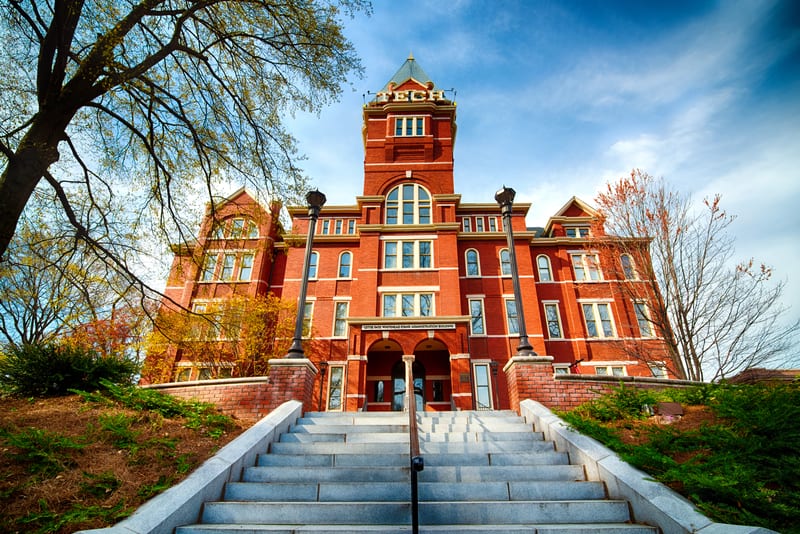The Georgia Supreme Court, in Sanders v. Riley, Ga. LEXIS 179 (Ga. March 16, 2015), held that once a child has been virtually adopted in Georgia by an adopted father, the subsequent relation between the adopted child and the natural father does not sever the previous virtual adoption.
What is a Virtual Adoption in Georgia?
Virtual adoption has been recognized in Georgia for over a century. As explained by the Sanders Court,
A parol obligation by a person to adopt the child of another as his own, accompanied by a virtual though not a statutory adoption, and acted upon by all parties concerned for many years and during the obligor’s life, may be enforced in equity upon the death of the obligor, by decreeing the child entitled as a child to the property of the obligor, undisposed of by will. Thus, this equitable remedy is applied only after the death of the person who agreed to adopt the child (whom we will call the “adopting parent”) and when there has been no legal (statutory) adoption. The child, who is often an adult by that time, is allowed to invoke the doctrine of virtual adoption “to avoid an unfair result from the application of intestacy statutes.”
The Facts In Sanders
Virtual adoptions are usually messy affairs, with ambiguous family relationships and litigation post-death. In Sanders, the Georgia Supreme Court was faced with a situation where a child was treated as having been virtually adopted by the father who raised her, and then connected to some extent with her biological father when the child was around age 14. The father died intestate (without a valid will under Georgia law) setting up a dispute over his estate between the father’s biological son and the daughter claiming that a virtual adoption under Georgia law had occurred.
Mr. Clifford “Colonel” Riley, the decedent, married Mrs. Riley. At some point, Mr. Riley and Mrs. Riley began living apart. Mrs. Riley began an affair with Mr. Warren, which resulted in the birth of Shalanda. Mrs. Riley, Mr. Riley and Mr. Warren agreed that the Rileys would raise Shalanda. Mr. Riley raised Shalanda as he raised his biological children.
Until age 14, Shalanda had no contact with her biological father Mr. Warren, and Mr. Warren provided no support. Around age 14, Mrs. Riley introduced Shalanda to Mr. Warren, and they occasionally saw each other, including at one point Shalanda living with Mr. Warren for a few weeks at age 16 when she ran away from home.
At Shalanda’s wedding, Mr. Warren walked her halfway down the aisle, with Mr. Riley walking her the rest of the way down the aisle.
Subsequently, Mrs. Riley shot and killed Mr. Riley and then herself. Shalanda paid for the funerals and listed herself as Mr. Riley’s child on his death certificate.
Mr. Riley died intestate, setting up the dispute between Shalanda and Mr. Riley’s biological son, Curtis, over whether there was a virtual adoption of Shalanda under Georgia law.
The Meaning of Severance Of the Parent-Child Relationship Under Georgia Law
The lower court held that Shalanda could not establish the requirements for virtual adoption in Georgia because she could not demonstrate a “severance” of her parent-child relationship with Mr. Warren.
In reversing, the Supreme Court explained as follows:
In our virtual adoption cases, however, this Court has focused on whether there has been a change in the child’s status in which all the parties began acting as though the child had been adopted, not whether the child and the natural parent ever saw each other again. And even if a complete “severance” of the relationship between the natural parent and the child were required, that requirement was satisfied here. As explained above, the evidence as viewed in the light most favorable to Shalanda shows that from the time she was born until she was 14, Mr. Riley was the only father that she had; Mr. Warren was entirely absent, had no relationship with her, and provided her no support, financial or otherwise, until she was a teenager. The trial court cited, and we have found, no authority for the proposition that once the child’s status has changed in the course of a virtual adoption – where a contract to adopt has been partially performed – the child can then become “unadopted” simply by developing a relationship later in life with a natural parent. Just as children, once legally adopted, do not become unadopted by forming a relationship later in life with their biological parents – something that is occurring with increasing frequency – children, once virtually adopted, do not become unadopted by developing a relationship later on with their biological parents.











